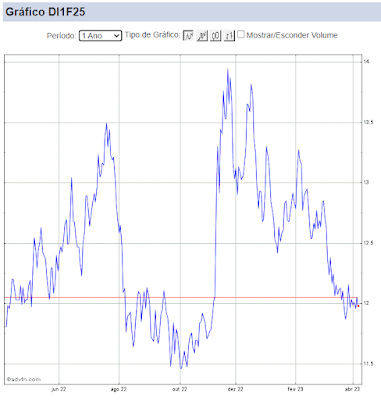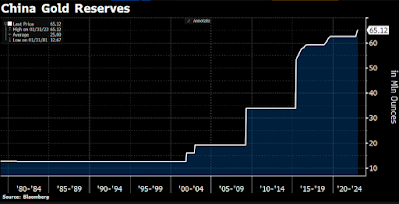Cenário político turvo na Alemanha. Novas restrições na China.
Os ativos de risco
estão operando próximos a estabilidade, com leve viés negativo, após as
negociações para a formação de um governo de coalização na Alemanha falharem. Não perece que o cenário político no país será
um vetor determinante para a economia local e/ou global, mas a incerteza pode
trazer alguma volatilidade de curto-prazo.
O Citibank fez um bom
resumo das possibilidades de agora em diante:
·
Chancellor
Merkel will brief President Steinmeier about the situation this morning, after
which all parties will deliberate internally on the next steps. We pointed the three options:
·
Grand
coalition: SPD would have to make U-turn – First, Merkel could (at least
informally) attempt to build a Grand Coalition with the SPD. The centre-left
party had chosen opposition after a very weak result in the election. By last
night, there was no sign that it might change opinion, but we do not rule it
out as splits in the party could emerge under pressure to avoid new elections.
CDU and SPD have just formed a regional government in Lower Saxony within one
week. Positions are largely aligned, relations good and new elections may make
collaboration inevitable anyway. However, some in the SPD may demand that
Merkel steps down.
·
New
elections: Complicated process – Germany has had early elections before (1972,
1983, 2005), but each time they took place after a lost confidence vote. That
route is closed to Merkel. Under Art. 63 of the German constitution, the
Bundestag would first have to elect a new Chancellor upon proposal by the
President, which is possible with a relative majority after 14 days of nobody
getting an absolute majority. The President can then within 7 days confirm the
winner or dissolve Parliament, which would lead to early elections within 60
days. There is no deadline to launch the process, but if the SPD does not open
up to a Grand coalition, it could start soon and elections could be held
probably in January at the earliest.
·
Minority
government: Unusual but possible – Germany has not had minority federal
governments before, and Merkel herself appeared to rule it out after the
elections in September. However, the process described above makes it
relatively straightforward to form. As the CDU’s programme is not particularly
ambitious, Merkel might be able to obtain majorities for some policies such as
modest tax cuts (with support from the SPD and FDP), increases in defence
spending (FDP, AfD) and euro policies (SPD, Greens). A minority administration
might be more stable than it appears as the opposition could only oust Merkel
with a “constructive vote of no confidence”, meaning it would have to align on
an alternative opposition candidate first, which seems unlikely. In other
countries (e. g. Spain, UK), minority governments have been formed amid
arguably more challenging political environments than in Germany. We do not
rule out such a scenario either.
A China anunciou mais uma rodada de
aperto/restrição ao mercado local de crédito/investimentos. As medidas devem
ser vistas como positivas a longo-prazo, pois vão na direção de desalavancar a
economia e administrar os excessos em setores específicos. No curto-prazo, as
medidas podem trazer alguma desaceleração do crescimento e efeitos pontuais
mais negativos em alguns mercados e classes de ativos. O Morgan Stanley resumiu
a situação da seguinte maneira:
· China’s new regulations plan to
streamline oversight of asset-management products sold by financial
institutions. The move is aimed at reining in risk and putting an end to
practices that take advantage of regulatory loopholes. China’s new regulation
has potentially already developed a temporary negative impact on risk appetite. Our
Asian economists suggest China will break out of its middle income
trap despite getting tougher on its regulation. Indeed, a financial de-risking
strategy is required to reduce China’s debt dependence especially on its
corporate sector. China will have to learn to grow without further aggregate
debt creation, suggesting shifting its growth from investment/manufacturing
towards its consumption/service sectors. Financial sector regulation is part of
this strategy, but also includes a shift of funds into China’s household
sectors via higher wages, higher saving deposit incomes, better social security
and a stable RMB boosting households' real disposable income. Investors should
not forget that China’s de-leveraging strategy requires support via strong
global economic growth and it will function best when the USD remains weak.
No Brasil, os jornais continuam
repercutindo a Reforma Ministerial e a possibilidade de votação da Reforma da
Previdência na primeira semana de dezembro. De acordo com a mídia, Rodrigo Maia
está saindo fortalecido da Reforma Ministerial e parece alinhado com o Planalto
em prol da Reforma da Previdência. Meus comentários de ontem seguem
válidos: https://mercadosglobais.blogspot.com.br/2017/11/brasil-governo-faz-esforco-final-pela.html.


Comentários
Postar um comentário